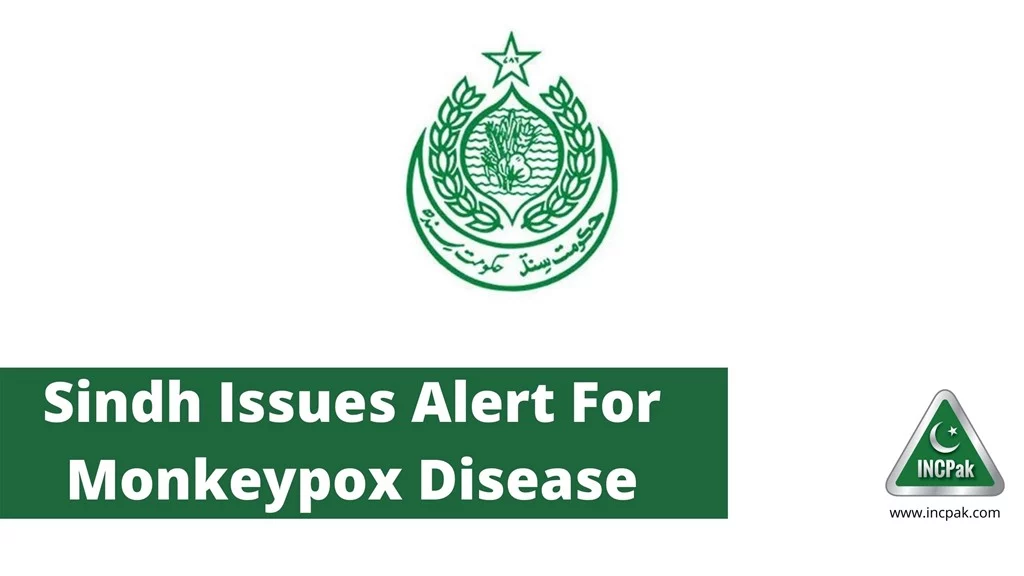The Sindh Health Department has issued a high alert in the province regarding the Monkeypox disease, saying that the virus can spread in Pakistan. In the statement, the provincial health department said that a high alert has been issued to take timely measures to prevent the spread of the infectious disease in the country.

It added that individuals arriving in the country can cause an outbreak of Monkeypox, so the health department has decided to screen the inbound passengers coming from the virus-hit countries. Meanwhile, the health ministry has also recommended increasing the surveillance process to prevent the spread.
According to experts, the Monkeypox virus can be transferred through contact with skin lesions or droplets from a contaminated person, as well as through shared items such as bedding or towels. On Saturday, the World Health Organization (WHO) also announced that it expects more cases of the virus to be reported in other countries.
What is Monkeypox?
Monkeypox is a virus that spreads from animals, including rats and primates, to humans in exceptional cases. The infectious disease is an endemic in Central and West Africa, where the majority of cases have occurred. The virus was first discovered in 1958 after outbreak of “pox-like” disease in laboratory monkeys, which gives it the name Monkeypox.
Symptoms and Treatment
The symptoms of Monkeypox include fever, body pains, chills, and exhaustion, while people with severe illness can develop rashes and sores on the face and hands that can spread to other parts of the body. The disease is a component of the same viral family as smallpox.
The quarantine period of the virus usually lasts between five days and three weeks, while majority of people recover within two to four weeks without hospitalization. However, one in ten persons can die from Monkeypox, and the disease is said to be severe in young people.
Read more: Karachi Imposes Ban on Drones in District South.









